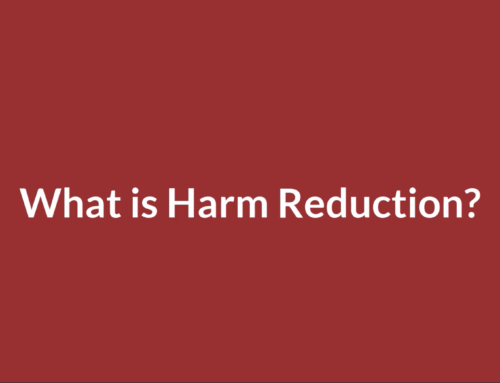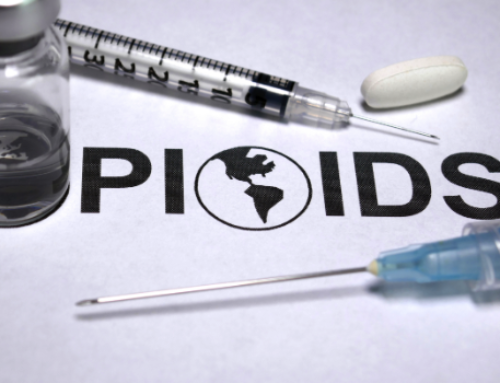It’s nearly impossible to find a life in the United States that the opioid epidemic hasn’t touched in some fashion. Sisters and brothers, parents and grandparents, friends and loved ones – the national opioid crisis spans people of all ages, income levels, ethnicities, and backgrounds.
Until public health and government officials catch up with practical legislation and effective resources, families and communities need to do everything in their power to protect and assist those around them.
The Opioid Epidemic: How Bad is It?
In short, bad. To put the opioid epidemic into perspective, deaths from drug overdoses have surpassed fatalities from car accidents at their peak: more than 47 thousand Americans die each year from opioid misuse.
Here are some quick facts on the opioid crisis according to the latest numbers from the Centers for Disease Control and Prevention.
- Opioid overdose takes the lives of 130 Americans each day
- Up to 29% of people prescribed opioids for pain misuse them, with 12% developing an addiction
- 80% of people who have used heroin didn’t start with heroin, they misused prescriptions first
- An estimated 1.7 million Americans suffer from a prescription opioid-related substance use disorder
- 652,000 suffer from heroin-related substance use disorders
How Did the Opioid Epidemic Happen?
By and large, the current opioid crisis found its origins in 100% legal prescriptions. In the 1990s, doctors across the country began over-prescribing opiate-based painkillers for surgical patients or patients with chronic pain which slowly accumulated an avalanche of national addiction.
Many people began taking opioids without knowing about the devastating consequences and found themselves in the grip of addiction. Synthetic and extremely potent opioids like fentanyl also became more common, sometimes available in candies and patches, which caused overdoses and deaths to skyrocket.
Understanding and Managing Withdrawal Symptoms
If a person uses opioids for many weeks, months, or years, they will experience withdrawal symptoms when they stop taking the drugs. Symptoms vary depending on the strength of the opioid they were taking, how long they used the drug for and several other factors.
Even patients who haven’t misused opioids intentionally will likely suffer from withdrawal if they took the drugs for chronic pain over an extended period of time – that’s why it’s called the opioid epidemic.
Unlike benzodiazepines and alcohol withdrawal, opioid withdrawal typically isn’t fatal. It can, however, range anywhere from mildly uncomfortable to excruciating. Symptoms of opioid withdrawal include:
- Runny nose, sweating, and watery eyes
- Muscle and joint pain
- Vomiting, diarrhea, nausea, and stomach cramps
- Anxiety, rapid heartbeat, and insomnia
- Fatigue, excessive yawning, and depression
- Irritability, agitation, and paranoia
If someone is unconscious or can’t stay awake, they could be experiencing an opioid overdose. Call 911 immediately. Seniors, low-income individuals, people taking multiple drugs or combining alcohol, and people taking high amounts of opioids are especially at risk.
Managing Withdrawal Symptoms
Although managing withdrawal symptoms at home is possible, medical detox is the safest and most comfortable option. Doctors and specially trained medical professionals will administer medications to ease withdrawal symptoms and monitor patients for life-threatening complications like seizures and dehydration.
Nothing compares to treatment from a trained addiction specialist in a dedicated medical facility, but attempting withdrawal at home should contact a trusted friend to keep a close eye on them. Stock up on over-the-counter (non-narcotic) medications like Tylenol or Motrin, Imodium, Dramamine, and herbal supplements to combat uncomfortable symptoms as they crop up.
Which Recovery Services are Available?
After going through detox, comprehensive addiction services in San Diego are crucial for avoiding relapse and building a life without addictive substances. Each person is unique. Although some emotions and experiences overlap, each person has a unique story and situation. As a result, a bespoke approach is necessary. Recovery services should include any combination of the following.
- Medical detox and withdrawal treatment
- Inpatient/Outpatient rehabilitation
- Individual, Group and Family therapy
- Education and job training
- Affordable housing assistance
- Community resources and connections
- A healthy support system including mentors and other people in active recovery
- Transportation
- Specialized services for people of marginalized groups
Volunteers of America Southwest Addiction Services in San Diego
Volunteers of America Southwest Behavioral Health is proud to offer comprehensive addiction services in San Diego. Taking a personalized approach, VOA strives to create a safe and productive environment where individuals can realize their full potential and creating a life free from the chains of addiction.
Addiction is complicated and impacts every aspect of life. As such, recovery services shouldn’t end after detox and inpatient treatment – that’s only half of the battle. To build a successful recovery, it’s important to address the risk factors and problems of addiction in the first place, including employment and housing.
VOA takes a multifaceted approach to help combat addiction and the opioid epidemic:
- Withdrawal Management: Intake, assessment, medical detox, observation, case management, referrals, community resources, transportation to recovery services, and discharge.
- Renaissance Treatment Center: Intensive inpatient treatment including withdrawal management, group therapy, one-on-one counseling, and family therapy.
- Relapse Prevention and Recovery: Outpatient services designed to help people strengthen their long-term recovery including alumni support groups, finding stable housing, assisting with employment and education, and improving physical, emotional, and spiritual wellness.
Relapse doesn’t have to be inevitable and liberation from addiction is entirely possible. Join the countless people building a new life. Contact Volunteers of America Southwest today to learn more.


